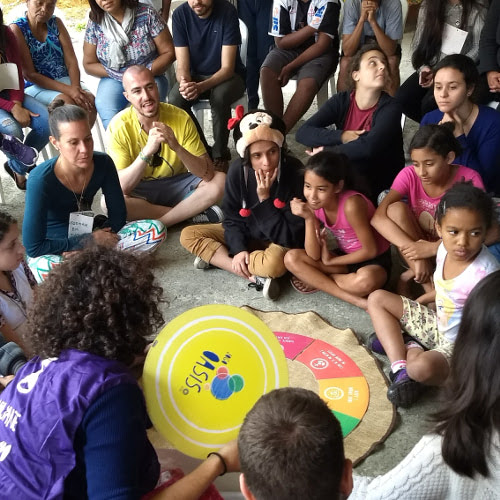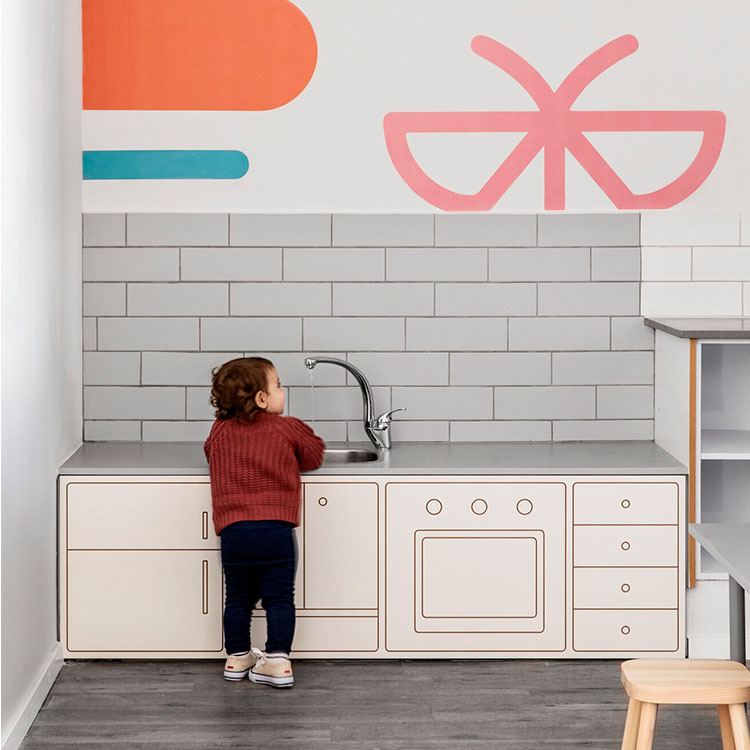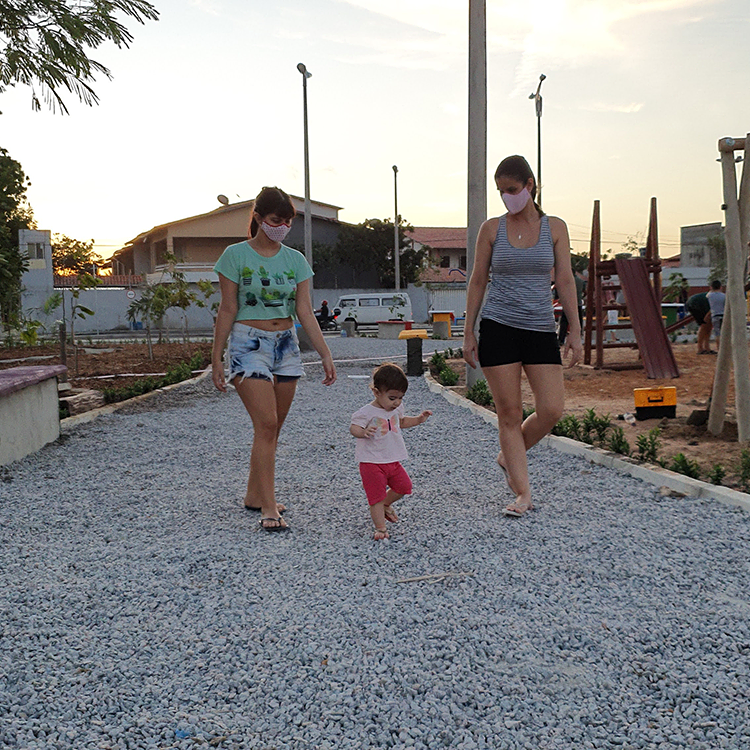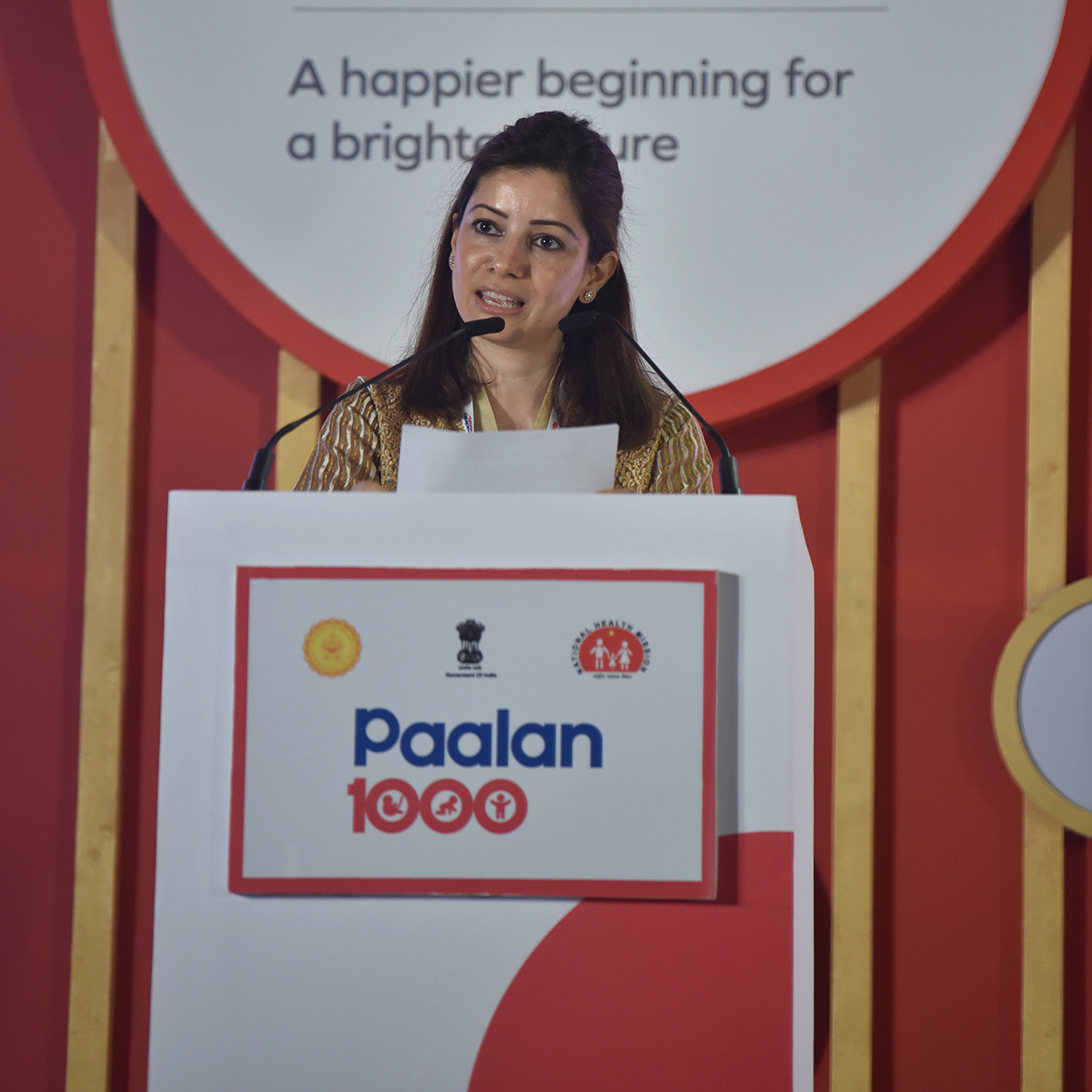“We want to take care of the toy library, we need adults to trust us, everywhere we go there is an adult talking about what we need to do. To play… to play free! We can organise the activities. We can organise the rules, care for it, clean it, organise it, play ourselves with the younger children.”
Those are the words of Andrey, a 12-year-old who participated in the ‘Oasis Game’ in the Santa Maria community. Implemented by Instituto Elos, it resulted in the creation of a ‘leisure street’ and a toy library with local resources, energy and talents. In all, 66 people joined the core group of game ‘players’, 350 people were directly involved and 2,000 families indirectly impacted.
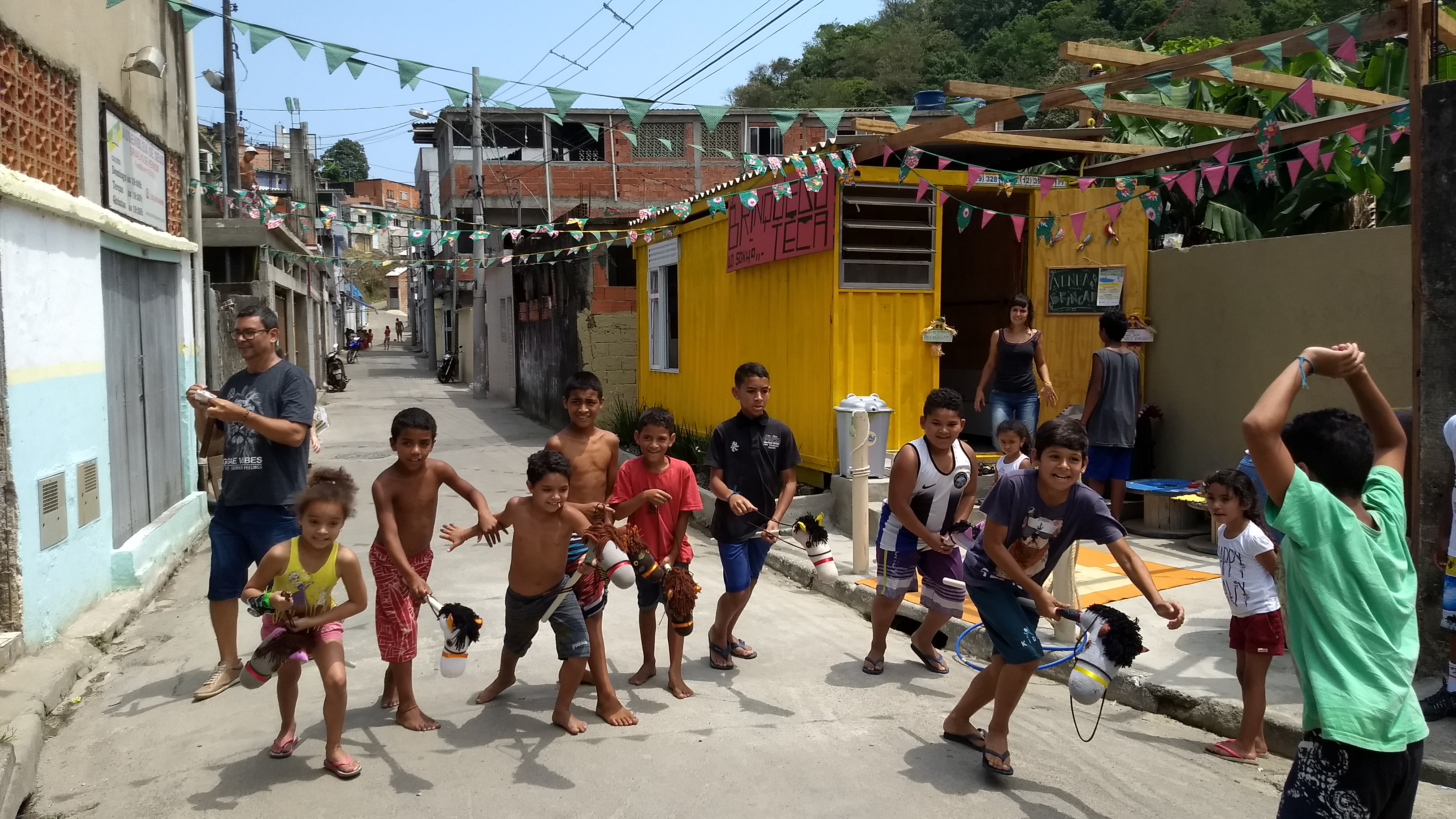
The Oasis Game is an award-winning participatory community development methodology, which engages people to define their dreams, design solutions and construct those solutions themselves. It has now been applied in over 50 countries. The game takes eight days and involves seven steps that have both a social effect (empowerment, building a stronger sense of community) and a physical result (a dream is materialised during the process).
In this project, we invited participants to take the perspective of 95cm, the height of an average 3-year-old. Alongside backing from BvLF’s Urban95 initiative, our partners included the Secretary of Institutional Relations and Citizenship and Secretary of Education of Santos City Hall, CRAS São Bento (Reference Center for Social Assistance), CECONV (Santa Maria Cohabitation Center), Santa Ana and São Joaquim Church (Morro Santa Maria), Society of Improvements Santa Maria, Morro Subprefeitura, and MIB (Map of Brazilian Childhood).
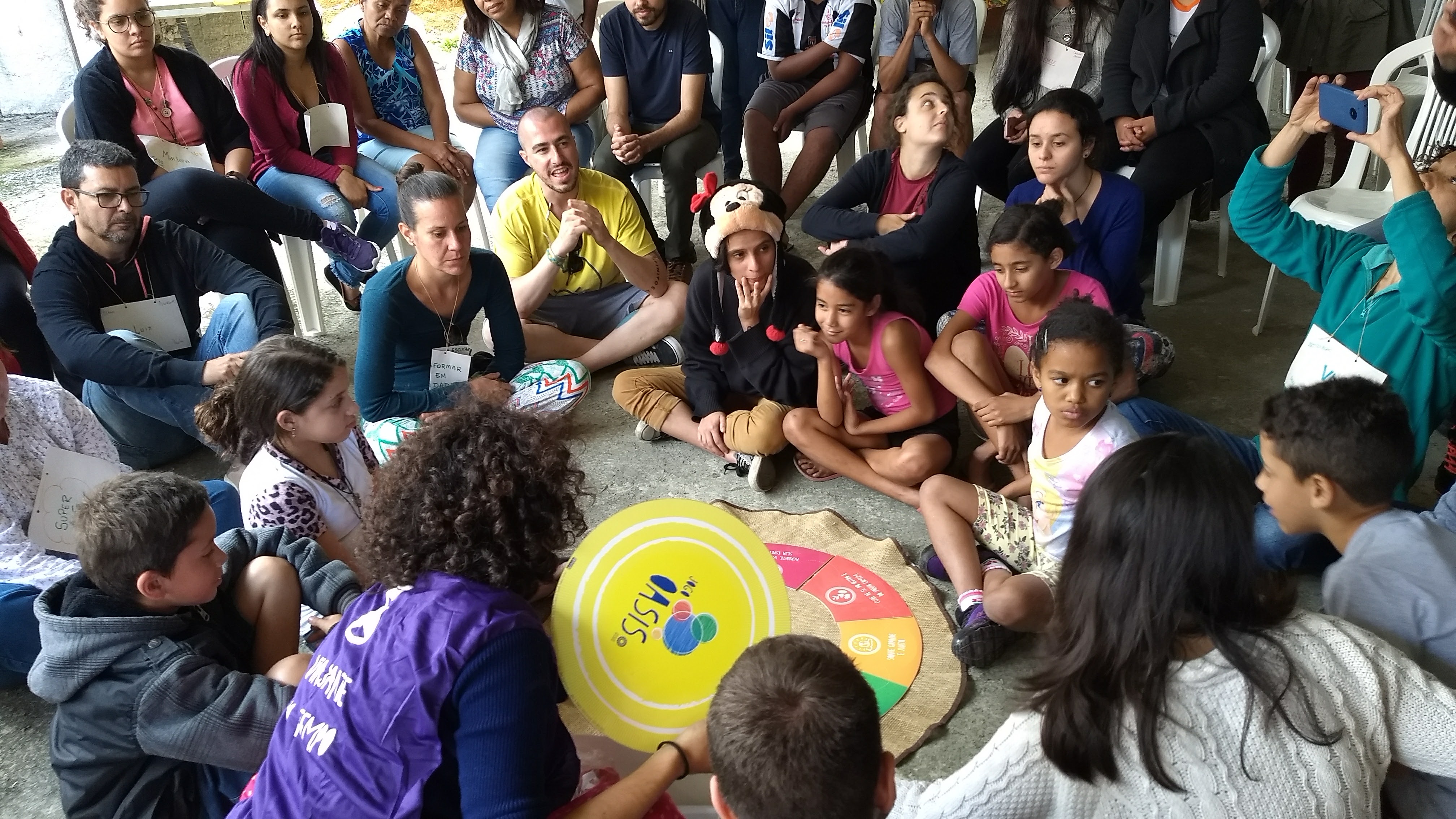
Although game players did include fathers and mothers – alongside children, educators and others – we were unable to achieve our goal of greater involvement of families. To meet their financial needs, fathers and mothers often spend 10 to 12 hours a day away from home. In their free time, some choose leisure activities with adults, leaving children again in care of others.
Andrey’s situation was typical, not only of Morro Santa Maria, but of many places in Brazil. When we questioned her ability to be responsible for taking care of the toy library, given her young age, she replied that her younger brothers are in her care during the day, and she cooks, washes and feeds them as well as attending school. The playroom would be one of the few spaces she could be a child, even in the company of her younger siblings.
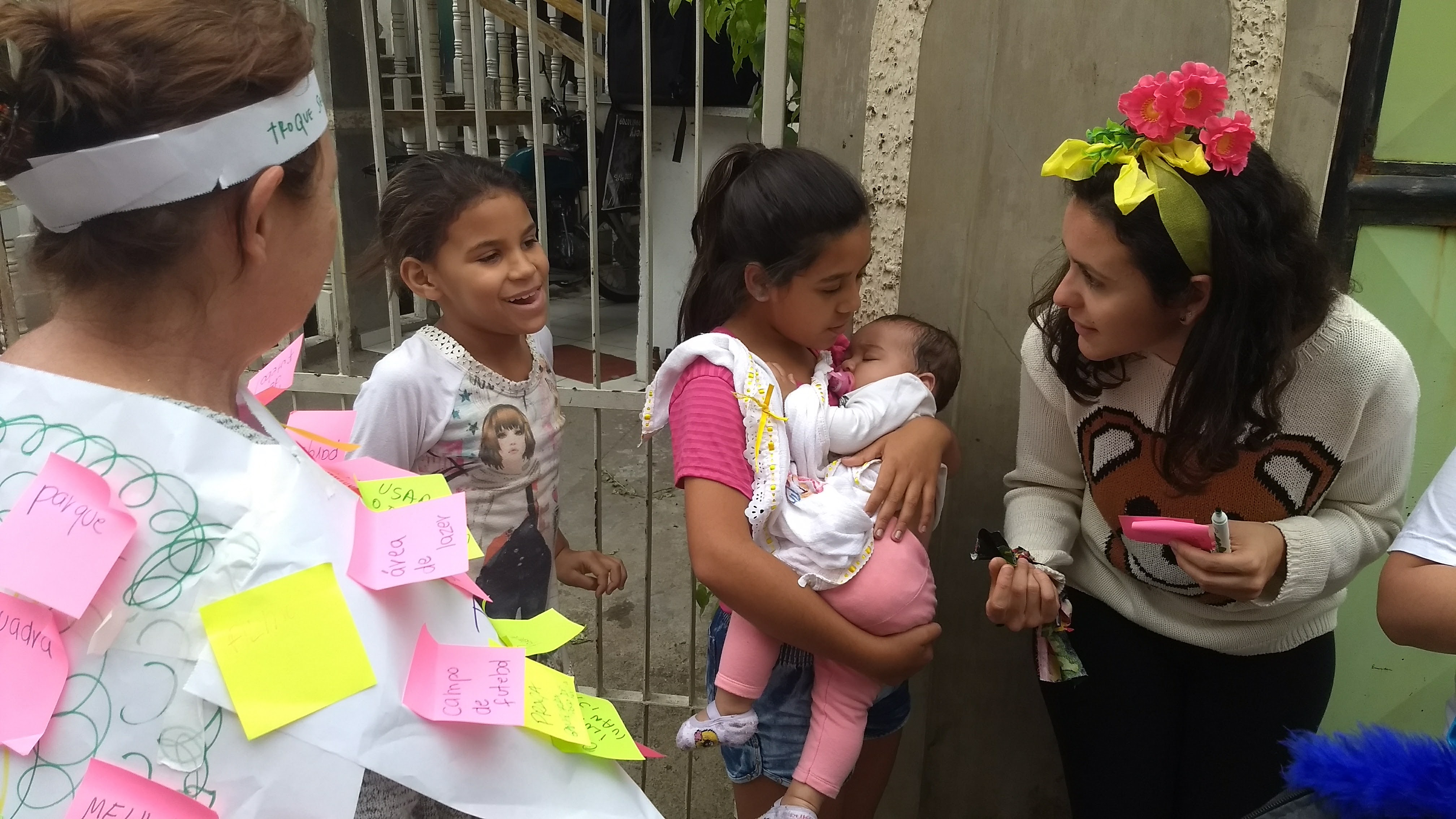
We leave this project, therefore, with some concerns: how do we as a society take care of families so they can prioritise an appreciative gaze, affection and care of their children and their community? How can we enable them to realise the dream of giving their children better conditions in learning, playing, eating and sleeping? Brazil remains riven by inequalities, from income to access to water, sanitation, adequate housing, job opportunities, education and health.
We are now looking for partners to support the continuity of activities for mothers, fathers and children. We have much to accomplish so that abundance becomes a reality for more people: the name of Instituto ELOS comes from bringing together different partners to build the world we dream of, and we will not be able to do this alone.
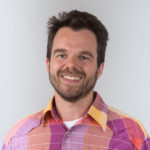 Author: Rodrigo Rubido Alonso is an architect, co-founder and executive director of Instituto Elos, a Santista organisation with worldwide reach that mobilises people to transform the world we live in into the world we dream of, from community to community.
Author: Rodrigo Rubido Alonso is an architect, co-founder and executive director of Instituto Elos, a Santista organisation with worldwide reach that mobilises people to transform the world we live in into the world we dream of, from community to community.
“At Elos I’ve co-created the Warriors Without Weapons programme (Guerreiros Sem Armas) and the Oasis Game, being also a facilitator of these programmes. Besides that, I’ve been working internationally as a consultant and speaker on social change, entrepreneurship for change, participative leadership, community building and community mobilisation for placemaking in multicultural contexts.
Over the last 20 years I’ve been focused on the design and facilitation of methods and process for collective learning and action based in learning by doing experiences for personal and social transformation. I’ve been doing this working with social, private and public sectors in Brazil and abroad in countries such as Bolivia, Curaçao, England, The Netherlands, Spain and Zimbabwe.”
Rodrigo was one of the four winners of the Tällberg Global Leadership Prize. For more information watch this video.
